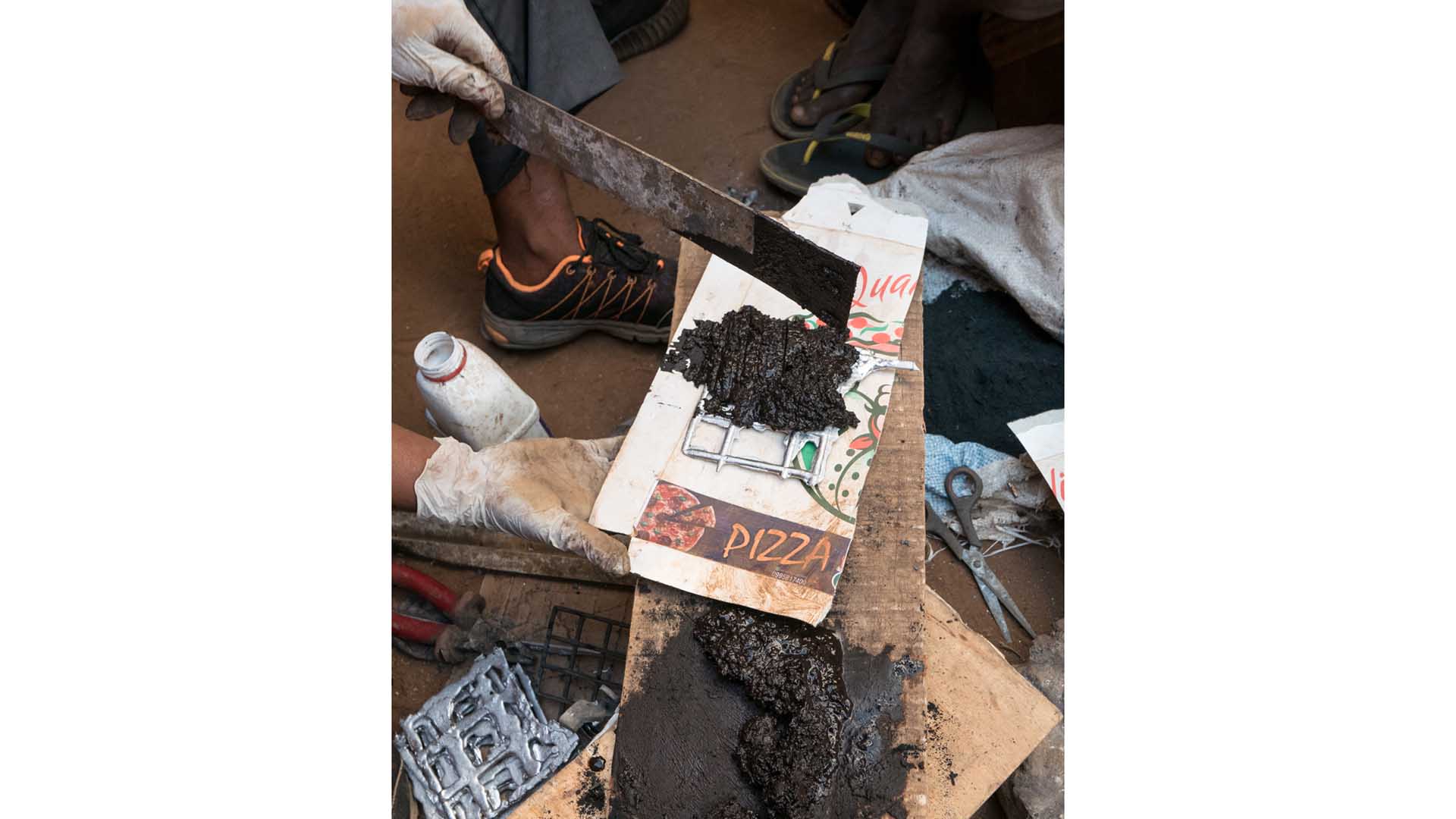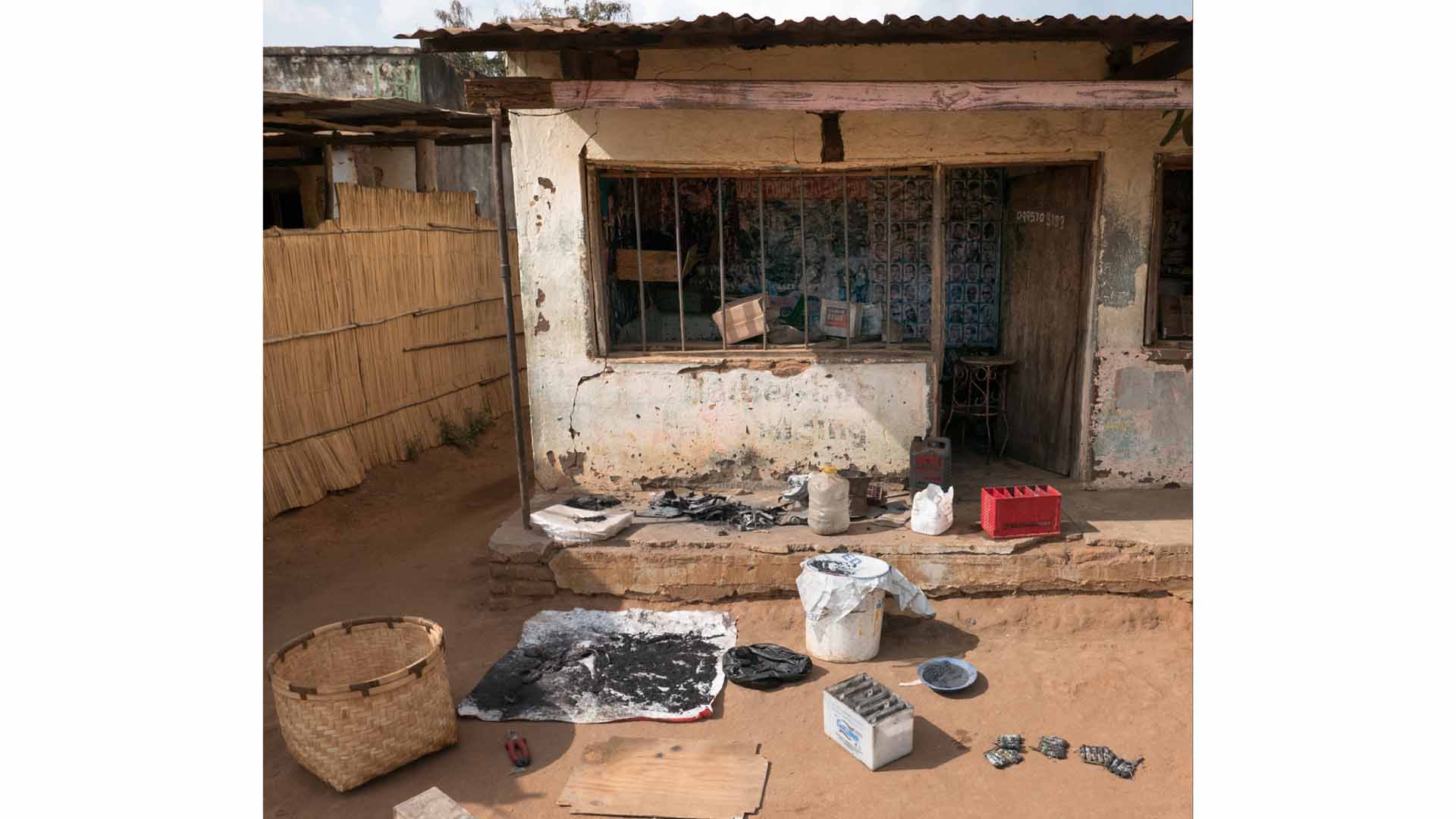UPDATED 1 Sept: The EI library in London is temporarily closed to the public, as a precautionary measure in light of the ongoing COVID-19 situation. The Knowledge Service will still be answering email queries via email , or via live chats during working hours (09:15-17:00 GMT). Our e-library is always open for members here: eLibrary , for full-text access to over 200 e-books and millions of articles. Thank you for your patience.
New Energy World™
New Energy World™ embraces the whole energy industry as it connects and converges to address the decarbonisation challenge. It covers progress being made across the industry, from the dynamics under way to reduce emissions in oil and gas, through improvements to the efficiency of energy conversion and use, to cutting-edge initiatives in renewable and low-carbon technologies.
Scientists urge action over toxic pollution from solar power waste in Africa
1/5/2024
News
Researchers from The University of Manchester investigating waste management practices for off-grid solar technologies in Malawi say they have discovered life-threatening quantities of lead pollution caused by improperly-managed battery waste.
Off-grid solar technologies which are used to provide power to remote areas are thought to be crucial for expanding electricity access across sub-Saharan Africa. The private market for off-grid solar electrification technologies is expected to provide electricity access to hundreds of millions of people by 2030, subsidised by global energy companies in the Global North, including the UK. However, household-scale off-grid solar energy systems in sub-Saharan Africa mostly depend on lead-acid batteries for energy storage, as they are the most affordable and established technology.
But scientists warn that the absence of formal waste management infrastructure presents major human health and environmental risks and urge government intervention immediately.
The research, published in the journal Applied Energy, was led by Dr Christopher Kinally and funded by government through EPSRC.
Toxic informal waste management practices are known to be common for automotive batteries and electronic waste in low- and middle-income countries, but the environmental and health impacts of these practices have been widely overlooked. Now, efforts to promote sustainable development and electricity access are adding to these life-threatening waste streams, according to the study.
Kinally found that within suburban communities in Malawi, lead-acid batteries from solar energy systems are being refurbished openly on busy market streets by self-taught technicians, who are not aware of the toxicity of the materials they are handling.
He saw batteries being broken open with machetes, lead melted over charcoal cooking stoves, and improvised lead battery cells made by hand. In the process, approximately half of the lead content from each battery leaks into the surrounding environment, releasing the equivalent of more than 100 lethal oral lead doses from a single battery into densely populated communities.
This is the first data to quantify lead pollution from the informal recycling of lead-acid batteries from solar energy systems, according to the researchers.
Dr Kinally says: ‘The private market for off-grid solar products is a very effective way to increase access to electricity, which is crucial for sustainable development. However, the resulting toxic waste flow is growing rapidly across regions that do not have the infrastructure to safely manage electronic waste. Without developing infrastructure, legislation and education around these technologies, there are severe public health risks. Significant social, economic and legislative interventions are required for these solar products to be considered as a safe, low-carbon technology in sub-Saharan Africa.’

An improvised lead battery cell being made on a pizza box by a self-taught battery recycler in Malawi, with lead oxide paste (degraded lead battery cells crushed and mixed with sulphuric acid) pasted over a fabricated lead grid
Photo: The University of Manchester
Dr Alejandro Gallego Schmid, Senior Lecturer in Circular Economy and Life Cycle Sustainability Assessment at The University of Manchester, adds: ‘The problem is not the use of a renewable source like solar energy, but the lack of appropriate treatment of the batteries at the end of life. We urgently need further research to reveal the health impacts of the identified flows of toxic pollution from solar batteries.’
Lead is a potent neurotoxin, and very low levels of lead exposure is known to permanently impact a child’s brain development. UNICEF has estimated that 800 million children across low- and middle-income countries have lead poisoning.
This widespread lead pollution is largely driven by improperly-managed automotive battery waste, and is expected to have substantial health and economic impacts across the Global South yet continues to be overlooked, says the researchers.
Prior publications from the research team also highlight that the private off-grid solar market suffers from a general lack of supplier accountability. Substandard, short-lived and counterfeit off-grid solar products were found to be common in Malawi, exploiting vulnerable energy-poor populations.
A lack of education about how to build and use these solar energy systems, which are particularly vulnerable to damage from improper use, is also severely limiting the lifetimes of batteries in off-grid solar energy systems. Batteries in Malawi were recorded to often fail within a year, far shorter than the 3–5 year expected lifetime, accelerating the toxic waste flow. Meanwhile, the environmental impacts (including carbon emissions) from manufacturing and replacing short lived lead-acid batteries is compromising the sustainability and environmental benefits of solar energy systems.
The research team has also provided policy recommendations for waste management solutions, including changes to how solar energy companies receive investments from the UK and Global North.

A typical battery refurbishing shop on a market street of an off-grid community in the suburbs surrounding Lilongwe, Malawi – degraded lead battery cells are crushed and left as shrapnel and black dust open on the street, exposed to wind, passers-by and passing livestock, and posing a particular danger when located near nursery schools and community water wells
Photo: The University of Manchester
